Plants ordered now will ship Spring 2026 🙂
Licorice, Official (Glycyrrhiza glabra) potted plant, organic
Price range: $8.50 through $21.95
Family: Legume (Fabaceae)
Hardy to Zones 7 to 11
Herbaceous perennial native to the Mediterranean and to Russia. True, sweet variety. Traditional usage (TWM): demulcent, expectorant, flavoring agent, chronic fatigue, adrenal exhaustion, gastric ulcer. Plant prefers full sun and dry, alkaline soils. Inoculate soil with rhizobium (mycoblast) for best results. Once established, the plants shoot up like a young willow thicket, setting erect lilac flowers that give way to the smooth pods. The part used is the stoloniferous root, which can be harvested after 2 or 3 years of growth. Plant prefers full sun and dry, alkaline soils. Space 1 to 2 feet apart.
Potted plant, Certified Organically Grown

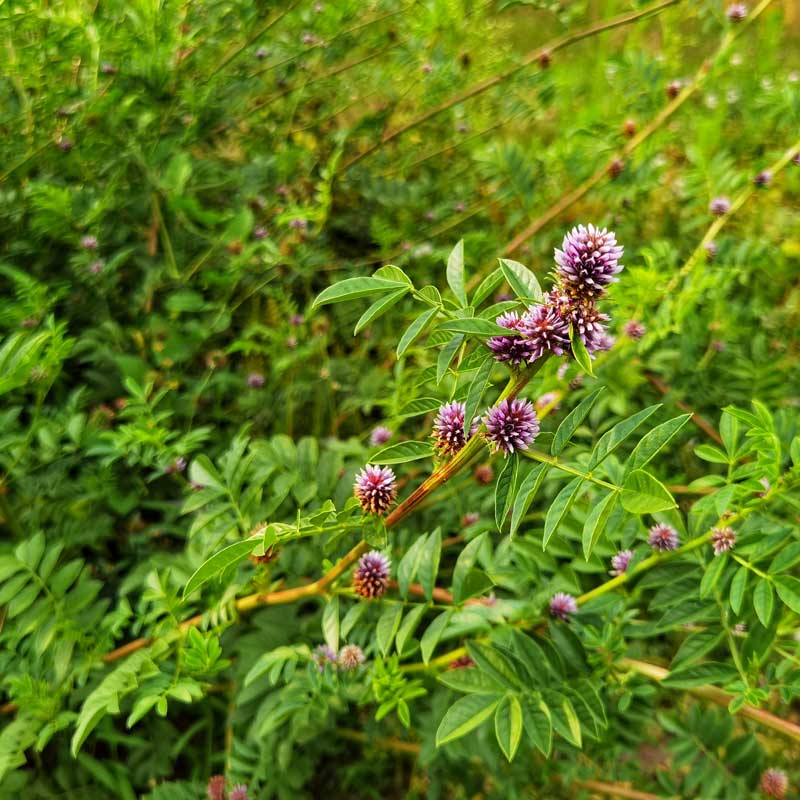
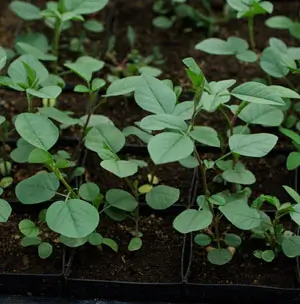
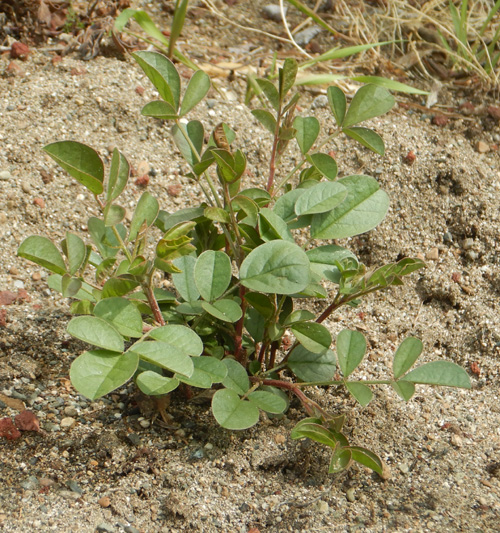
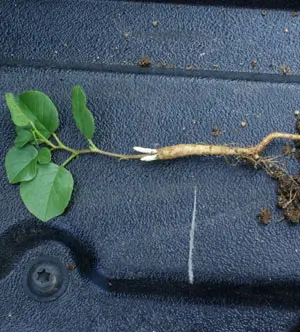
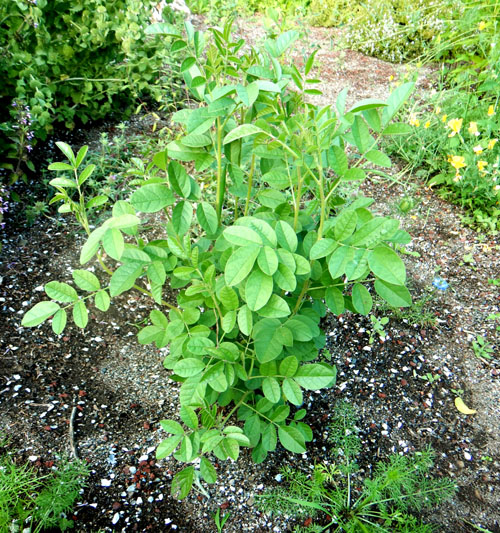
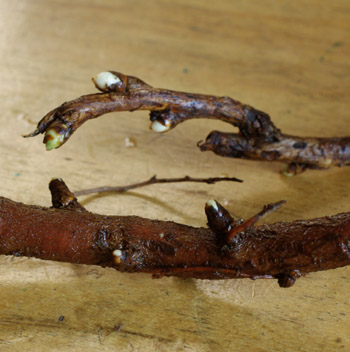
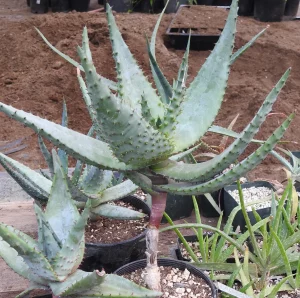
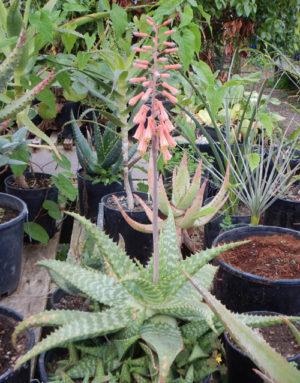
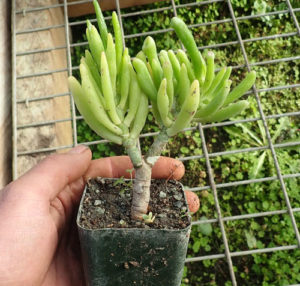
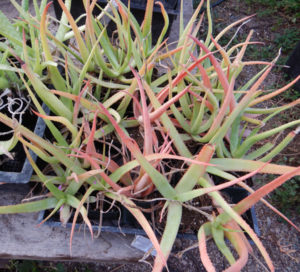
Agnes –
Hi Richo, Do you think it would grow in pot for zone 6? Thanks.
Upvote if this was helpful (0) Downvote if this was not helpful (0) Watch Unwatch Flag for removal
Richo Cech –
Hi Agnes, Yes, we sometimes keep them in pots for years before they go out to the people. They are slow-growing to start. The official type is smaller than the Chinese and does better in pots. Make sure to give pklenty of compost. Richo
Upvote if this was helpful (0) Downvote if this was not helpful (0) Flag for removal
Question
James Hascall –
What zone is central TX?
Upvote if this was helpful (0) Downvote if this was not helpful (0) Watch Unwatch Flag for removal
Richo Cech –
ZONE 8
Upvote if this was helpful (0) Downvote if this was not helpful (0) Flag for removal
Question
Sue –
Needing advice: If this plant is shipped to Kansas where temps are in the 90’s, how do you think it would survive? Would it be better to wait until fall when I could pot it up and place it in the greenhouse over winter? Thanks for keeping track of my order!
Upvote if this was helpful (1) Downvote if this was not helpful (0) Watch Unwatch Flag for removal
Richo Cech –
Hi Sue,
Licorice loves heat and doesn’t even grow until the ground gets hot. I think we should just leave it as it is and trust its the best. Richo
Upvote if this was helpful (1) Downvote if this was not helpful (0) Flag for removal
suzanna –
Glycyrrhiza glabra) is a must have!
Upvote if this was helpful (0) Downvote if this was not helpful (0) Watch Unwatch Flag for removal
Question
Cynthia Wheaton –
I live in western Washington, so my native soil is not dry or alkaline. I’d like to plant Glycyrrhiza official in a large full-sun raised bed. How can I create the proper soil?
Upvote if this was helpful (1) Downvote if this was not helpful (0) Watch Unwatch Flag for removal
Alice –
Hi Richo, I’m in zone 9b/10a of SW Florida, and would love to grow this, but our soils are sandy and acid. And it rains a LOT here in july/aug/sep. Do you think if I amend my soil, somehow, to be more alkaline, it would do well here?
Upvote if this was helpful (1) Downvote if this was not helpful (0) Flag for removal
Richo Cech –
hi alice, yes, this can be grown in your area. A sandy soil is fine. The plant makes running rhizomes (licorice sticks!) in a sandy soil. To alkalinize, work in some ground limestone or a natural product called dolomite. Put in a level shovelful for each plant, and work in well to the soil under and around where the plant is to go. Richo
Upvote if this was helpful (1) Downvote if this was not helpful (0) Flag for removal
Andrea –
Do you sell licorice seed?
Upvote if this was helpful (0) Downvote if this was not helpful (0) Flag for removal
Richo Cech –
hey andrea, thanks for alerting me to that! Good quality seeds of official licorice are indeed available at this link https://strictlymedicinalseeds.com/product/licorice-official-glycyrrhiza-glabra-seeds/
richo
Upvote if this was helpful (1) Downvote if this was not helpful (0) Flag for removal
Kyle –
Wondering about amendments to feed this plant… What nutrients does it want more or less of? Being root/rhizome heavy I would think it wants a good amount of phosphorus..?
My soil is generally alkaline but not really sandy. I could work in some wood ash to insure the pH but that will be very high in potassium.
Also do any foliar feeds, such as calcium, epsom salts or borax help it?
Upvote if this was helpful (1) Downvote if this was not helpful (0) Flag for removal
Richo Cech –
Hello Kykle, Glycyrrhiza is a legume that requires little fertility in its soil, because it sequesters rhizobacteria that help nourish the plant. Remember the difference between cultigens that require rich soils made by humans and wild plants that do fine in unamended soils. If your licorice is doing poorly, it is because the rhizobacteria are not present. You can purchase a widescale inoculant or inoculate with soil taken from around another healthy legume. The main thing is a fast-draining, alkaline soil. Richo
Upvote if this was helpful (2) Downvote if this was not helpful (0) Flag for removal